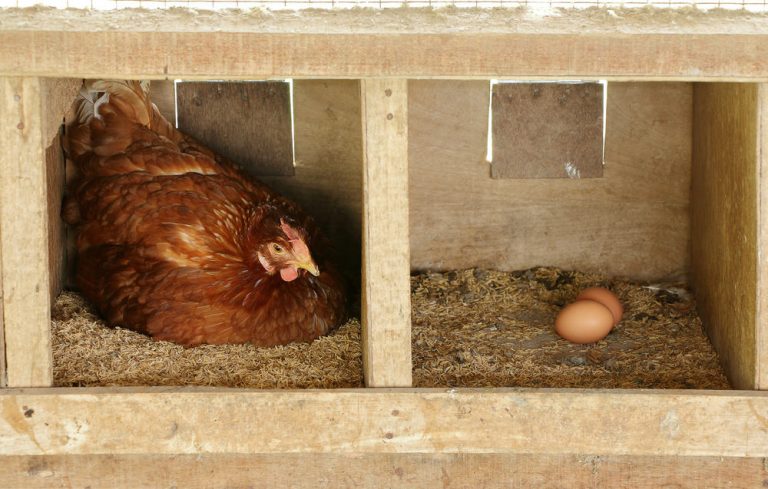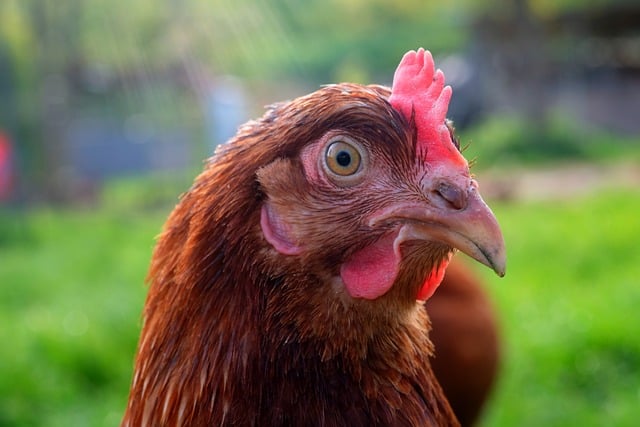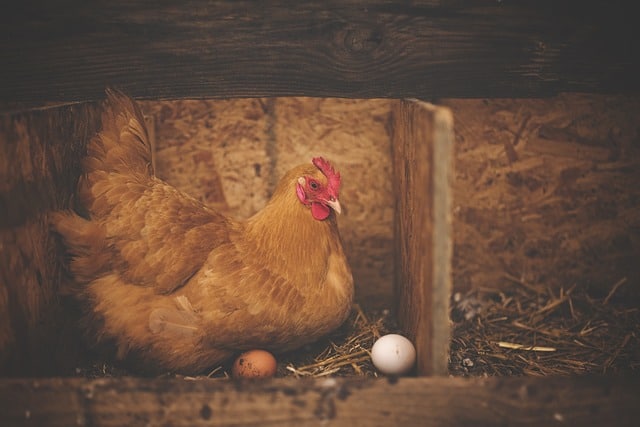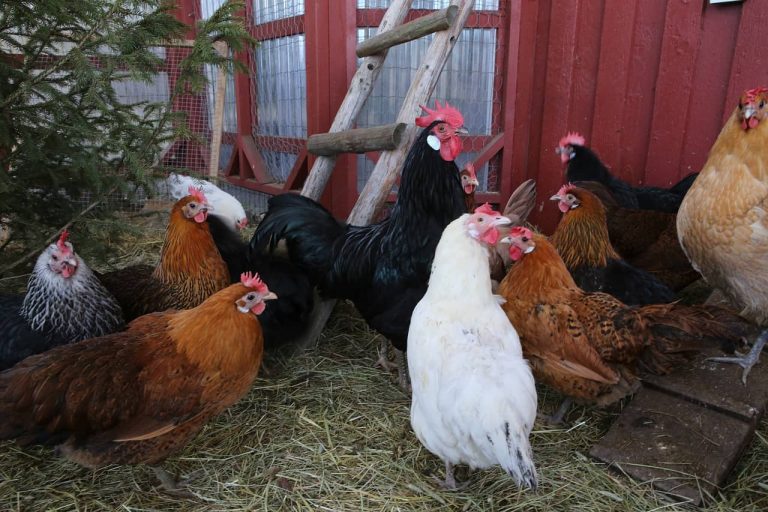Snakes are dreaded creatures, even by humans. They are efficient killers, whether for defense or for food. Among the prey for snakes are chickens, especially the chicks, while they are still young and exposed. Funnily enough, snakes can also be chicken snacks.
Like all living creatures, chickens need a balanced diet consisting of carbohydrates, proteins, fats, water, vitamins, and minerals. Snakes, as well as other smaller reptiles and rodents such as mice, can sometimes be the source of protein for your chickens.
Contents
Chickens Can Kill Snakes?
If you happen to live in a geographical area where snakes are common, you will do well to worry about the security of your chicken. Because of domestication, chickens have lost most of their survival instinct against predators. The story is different when it comes to snakes.
Chickens, especially roosters and mother chickens, can kill larger snakes in self-defense or to protect their young ones. On very rare occasions, however, chickens can actively hunt for smaller snakes as sources of much-needed protein.
It’s not uncommon to see a snake slither straight into the chicken’s coop without the feathered friends noticing it. The birds may even hesitate to attack it. However, aggressive roosters can actively attack and kill snakes without hesitation.
How Do Chickens Kill Snakes?
Snakes kill either by constricting or by injecting a potent and often lethal venom into the bodies of their victims. However, not all snakes are venomous. Chickens are agile, so they can avoid the snakes wrapping around them or biting them.
Chickens have several natural behaviors and characteristics that can make them effective in dealing with snakes.
Pecking
Chickens have sharp beaks and powerful pecking abilities. When confronted with a snake, they may peck at it repeatedly, targeting vulnerable areas such as the head or neck. Continuous pecking can cause injury or even kill smaller snakes.
Mobbing
Chickens are social animals, and when they encounter a threat like a snake, they may exhibit a behavior known as mobbing. Mobbing involves a group of chickens surrounding and harassing the intruder, in this case, the snake. By mobbing, they can overwhelm and intimidate the snake, making it more likely to retreat or become incapacitated.
Scratching and Digging
Chickens are known for their scratching and digging behaviors. When they encounter a snake, they may scratch the ground vigorously, attempting to expose or disorient the snake. This behavior can make it easier for them to attack or discourage the snake from sticking around.
Alarm Calls
Chickens have distinct vocalizations that they use to communicate with each other. When they perceive a threat, like a snake, they may emit loud alarm calls to alert the rest of the flock. These calls can attract the attention of other chickens, who may join in the defense and help repel the snake.
It’s important to note that while chickens can be effective at dealing with smaller or non-venomous snakes, they may not be able to handle larger or more dangerous species.
Venomous snakes, in particular, pose a significant risk to chickens, as their bites can be lethal. Therefore, it’s crucial to prioritize the safety of your chickens and take appropriate measures to protect them from potential harm.
Are roosters better at killing Snakes?
Roosters, being male chickens, share many of the same characteristics and behaviors as chickens when it comes to dealing with snakes. However, there is no definitive evidence to suggest that roosters are inherently better at killing snakes than hens or female chickens.
Both roosters and hens can exhibit protective behaviors towards their flock and engage in pecking, mobbing, scratching, and alarm calls when confronted with a snake or other threats. The effectiveness of their response may depend on various factors, such as the individual chicken’s personality, size, and breed.
It’s worth noting that the primary purpose of roosters in a flock is not necessarily snake hunting but rather protection and providing leadership. They often act as guardians, alerting the flock to potential dangers and defending against predators. Their presence can contribute to the overall safety and well-being of the flock, including deterring snakes.
However, when it comes to actually killing a snake, it largely depends on the specific circumstances and the snake’s size and species. Some smaller snakes may be easier for chickens, including roosters, to overpower and dispatch, while larger or venomous snakes may pose a more significant threat.
If you’re considering using chickens or roosters as a form of snake control, it’s crucial to ensure the safety of your flock. Provide them with a secure enclosure and monitor their interactions with any potential prey, including snakes. If you have concerns about snakes in your area, it’s advisable to consult with local wildlife or pest control experts for appropriate guidance.
Are Snakes Threatening Chickens?
Chickens have an instinctive aversion to potential threats, including snakes. In general, chickens are naturally wary of unfamiliar objects, movements, and sounds, including the presence of snakes. They can display fear or caution when encountering snakes due to their survival instincts.
When chickens perceive a snake, they may exhibit the following behaviors:
- Alarm calls: Chickens may emit loud vocalizations to alert other members of the flock about the potential danger. These calls serve as a warning to the rest of the group.
- Freezing or alert posture: Chickens may freeze in place or adopt a rigid, alert posture when they notice a snake. They remain still and observe the threat to assess the situation before taking further action.
- Avoidance: Chickens may try to keep their distance from the snake by moving away from it or seeking shelter. They may instinctively retreat to a safe place to protect themselves and their young.
While chickens can be afraid of snakes, it’s important to note that individual chickens may react differently based on their personalities, previous experiences, and the specific snake species involved. Some chickens may be more cautious or fearful, while others may display a more assertive or aggressive response.
As a chicken keeper, it’s essential to provide a safe and secure environment for your flock, minimizing the potential for encounters with snakes or other predators. Regularly inspect and secure the coop and surrounding areas to prevent snakes from gaining access to the chickens’ living space.
Is It Safe for chickens To Eat Snakes?
Chickens are omnivorous creatures. They primarily consume grains, seeds, insects, and vegetation; they can occasionally prey on small animals such as mice, lizards, and even snakes.
In this regard, chickens are considered opportunistic feeders. It means they may not actively hunt for snakes, but they will eat if they get the opportunity. For example, if they kill a snake in defense, they will eat it.
Whether or not chickens will eat the snake depends on the size of the snake and the chicken itself. For instance, a recently hatched snake will be an easy snack for a grown chicken. The same goes for snakes that do not grow large even into adulthood.
In general, it is not recommended to intentionally feed snakes to chickens or any other domestic animals. There are several reasons for this:
- Potential health risks
Snakes can carry parasites, bacteria, or diseases that may be harmful to chickens. Feeding snakes to chickens could expose them to these potential health risks.
- Venomous snakes
Some snakes, such as venomous species, pose a significant danger to chickens if bitten. Venomous snake bites can cause serious injury or even death to chickens.
- Safety concerns
Handling and presenting snakes to chickens can be risky. It requires careful supervision and control to ensure the safety of both the chickens and the person handling the snakes.
- Natural diet and nutritional balance
Chickens have evolved to have specific dietary needs that are best met through a balanced and controlled diet. Their primary food sources are grains, seeds, insects, and vegetation. Providing proper and formulated chicken feed is the best way to meet their nutritional requirements.
Conclusion
Chickens can kill and eat snakes. However, this is not their normal diet. Snakes can pose more danger than provide nutrition for your chicken. It would be good to protect your chickens from snakes. If you are experiencing issues with snakes in your area, it is recommended that you focus on preventative measures to deter snakes from approaching the chicken coop.
This can include keeping the coop and surrounding area clean and free from potential snake hiding places, securing the coop to prevent snake entry, and consulting with local wildlife or pest control experts for appropriate advice and solutions.




